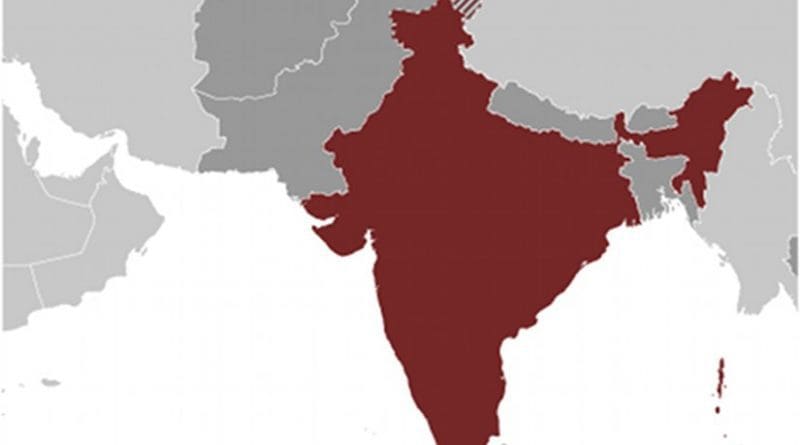Monsanto’s Ill-Effects In India – OpEd
By Iqbal Ahmed
Monsanto’s operation in India illustrates the monopolization and manipulation of market economy, tradition, and technology. The world’s largest producer of genetically engineered seeds has been gaining ground in India to benefit the Indian farmers – or so the company claims. However, instead of letting farmers grow their crops organically, the company has influenced them to use the genetically modified (GM) seeds.
It is one thing to convince farmers to use artificial seeds for the purposes of enriching their lives, it is quite another to manipulate nature and technology to profit from them.
The irony is GM seeds have not been effective in India and the consequences are not as rosy as what Monsanto had promised to deliver. Scathing reports of the mass suicides of Indian farmers broke out as recently as three years ago when scores of farmers took their own lives in order to escape the burden of high prices and the failure of Monsanto’s GM seeds.
Monsanto offered its GM seeds to the farmers of India with hopes of reaping plentiful crops. Mostly uneducated farmers thought Monsanto had come to provide a “magic” formula that would transform their lives. They had no idea what was coming.
Monsanto’s seeds in India did not produce what the company had promised and farmers hoped. The expensive seeds piled up debts and destroyed farming fields. In many instances, the crops simply failed to materialize. The farmers were not aware that the GM seeds require more water than the traditional seeds. Lack of rain in many parts of India exacerbated the crop failure.
With no harvest, the farmers could not pay back the lenders. Burdened with debts and humiliation, the farmers simply took their own lives, some by swallowing poisonous pesticides in front of their families. To date, an estimated 125,000 farmers have committed suicide all over India.
To add to the misery, wives inherited the debts along with the fear of losing their homes and lands. With no money coming in, they also had to pull their kids from schools. The mass suicide among the Indian farmers is known as the “GM genocide.”
In its company website Monsanto declares that its pledge is “our commitment to how we do business.” And then there are the business philosophies with virtuous words like “integrity” and “transparency.”
Monsanto’s business practices in India quite remarkably live up to the company’s motto. It leverages its power and influence to penetrate farming markets with motive but without morale.
Market power
Using legal and market powers, Monsanto penetrated Indian markets. It convinced the Indian local government by producing scientific data to invest its biotechnology for producing better crops. Through binding contracts and “vested interests,” the company prohibited selling traditional seeds in the local markets.
Unable to purchase traditional seeds, the farmers had to pay a hefty price for the expensive GM seeds. Many farmers had to borrow money from the local lenders to buy Monsanto’s seeds. To cite an example of how expensive the GM seeds are, 100 grams of GM cost $15 to the farmers compared with $15 for 1000 grams of traditional seeds.
Early last year, India Today reported that Monsanto manipulated scientific data to get approvals from the Indian government to sell its GM seeds to the local farmers. Monsanto has sold genetically altered seeds for products like tea leaves and brinjal to farmers all over India.
Vandana Shiva, a renowned scientist and activist in India, wrote that Monsanto had also planned to control water in India.
Its aim was to control water supply by privatizing its source. In other words, Monsanto sought to profit from water, a lifeline of Indian livelihood. By seeking control of water, Monsanto also seized the opportunity to benefit from the scarce water supply that plagues communities throughout India.
Manipulation and misinformation
The failure of Monsanto’s GM seeds was palpable. The farmers held onto their hopes for better crops after they had planted the “magic” seeds. Their crops never came. Throughout the villages in India the harvest from the GM seeds failed. The parasites destroyed the so-called “pest-proof” GM seeds.
By contract, the farmers could not save the seeds for the next season because of Monsanto’s patent clause which prevents farmers from reusing the seeds. Whether or not the farmers understood this legal binding would merit an examination to underscore the extent of Monsanto’s market power and business practices.
Action against GM seeds
Prince Charles does not like what Monsanto is doing or causing to the lives of the farmers in India. He has expressed his contempt for the “bio-tech leaders” and “politicians” who have contributed to suicides among the Indian farmers. His charity organization promotes “long-term benefits of sustainable agriculture” that would provide “decent returns” to the farmers.
The Indian government has stepped up to fight against the GM seeds. In 2010, the Indian Environment Minister issued a “moratorium” on Monsanto to introduce genetically engineered egg plant seeds in India. Only time will tell how long this policy’s effects will last.
A number of private companies have also teamed up with transnational companies like Monsanto to rake in profits from the GM seeds. In a country where money, politics, and business often go hand in hand, the farmers are at the mercy of their own fate.
This article reflects the views only of the author.

